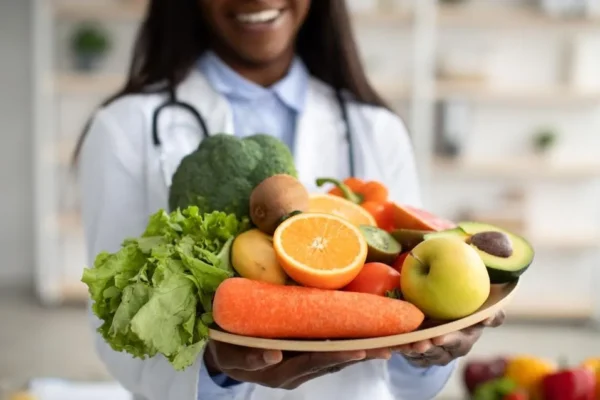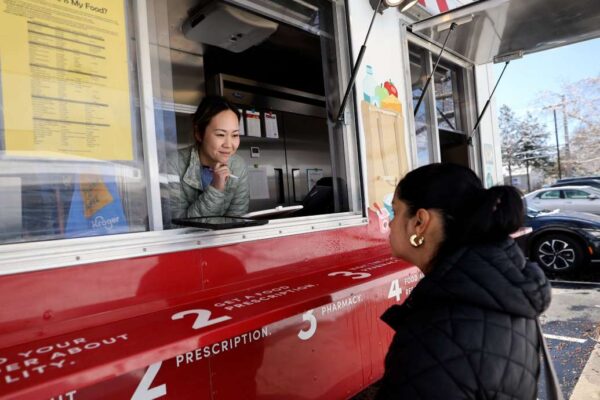9/03/2024 –
Abstract
Objectives
This study assesses the needs and feasibility of conducting a produce prescription (produce Rx) program in a pediatric dental clinic setting serving low-income patients.
Methods
We conducted a cross-sectional quantitative survey examining several household characteristics including demographics, benefits received, fruit and vegetable intake patterns, food security, feasibility of a produce Rx program, and respondents’ answers to questions based on social cognitive theory constructs. The survey was administered at the University of Nebraska Medical Center (UNMC) pediatric dental clinic, a pediatric dental residency clinical training site. One hundred adult respondents with low income completed a 36-item questionnaire during their child’s dental appointment.
Results
Almost half of respondents reported experiencing food insecurity (45%). Respondents who were food insecure experienced higher levels of nutrition insecurity (p = 0.012), less confidence in choosing fruits and vegetables (FVs) (p = 0.026), difficulty in purchasing FVs in their neighborhood (p = 0.012), and more concern that FVs cost too much (p < 0.001) when compared to respondents who were food secure. Notwithstanding the barriers they face, almost all respondents reported that they eat FVs because of health benefits (95%) and to set a good example for their family (91%). Additionally, most respondents expressed an interest in produce Rx programs (80%) and nutrition education activities (81%).
Conclusions
This study demonstrated the potential for produce Rx program uptake in a pediatric dental clinic setting through positive caregiver-reported need and interest. Future studies should explore how produce Rx programs can be adapted most effectively in this novel setting…








